Interview: Joe Murphy And Joe Robertson Talk THE JUNGLE at Playhouse Theatre
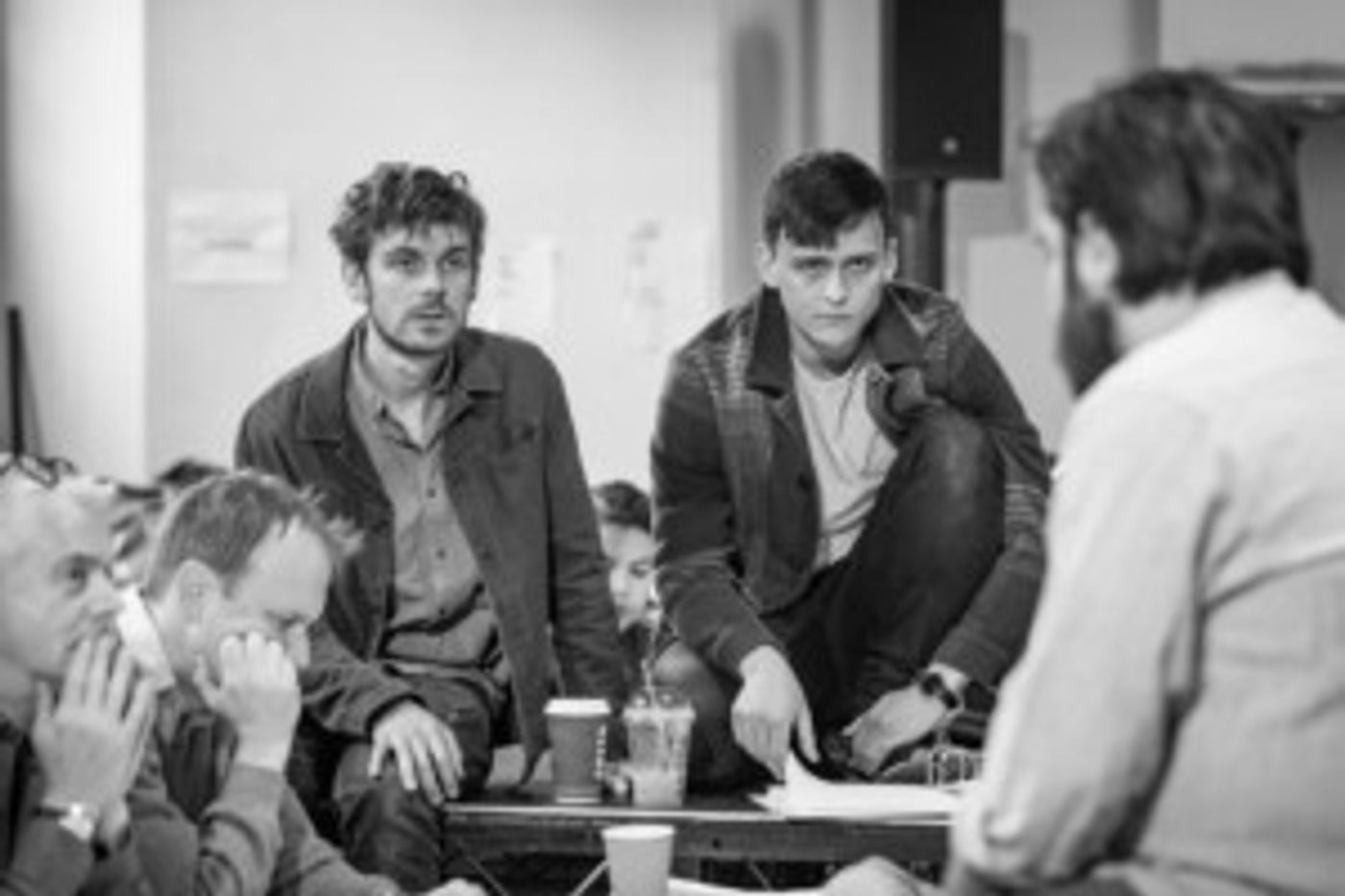
during rehearsals of The Jungle
After bringing their Calais experience to the Young Vic, playwrights Joe Murphy and Joe Robertson are ready to take The Jungle to the West End. They took time out of their busy rehearsal schedule to tell us what their journey has been like.
Why did you want to write The Jungle?
It came out of the seven months we spent living in the Calais Jungle, between 2015 and 2016.
When we were there, we were working alongside the residents of the camp and the other volunteers running the Good Chance theatre. We're talking about September 2015, I think - it was a place for the people who lived there to be able to express what they were going through and reflect on their situation, and a space for people to come together.
Everyone wanted to tell stories about what was happening, and in that process we met so many people and heard so many different stories and worked with brilliant artists. When we returned and half of the camp was evicted it was the natural thing to do, really.
We held some workshops with the people we met in The Jungle and we started to talk about how we should represent what we encountered there. We didn't know what to expect or whether the people were really up for that, but we felt that everything that happened in The Jungle was all significant. It was an important moment in time. It started with that.
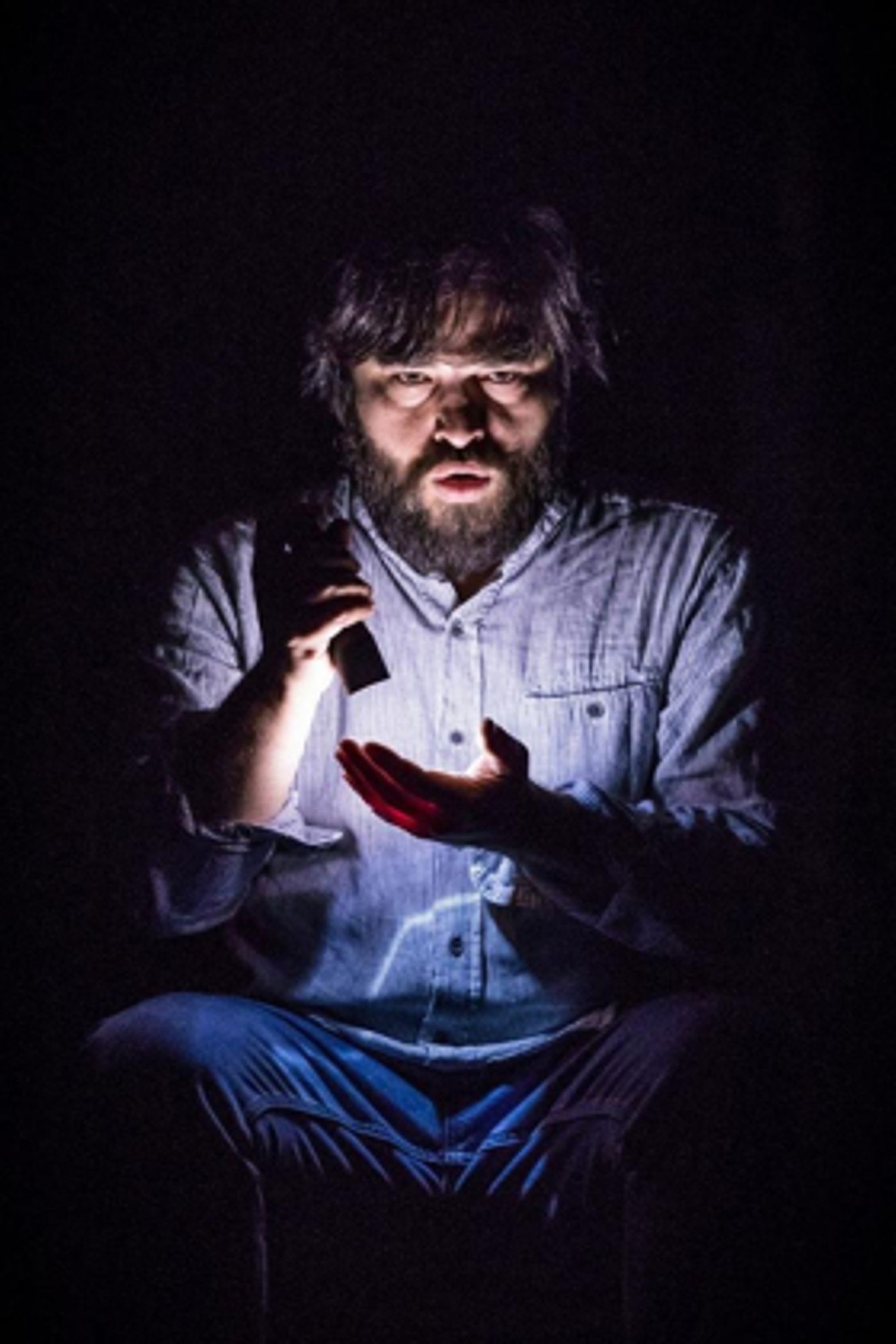
We started writing and we started working with directors and actors. We had a realisation like many of the people in the camp that The Jungle was an extraordinary situation. Very desperate in so many ways but very close to home. It was like a little map of the world - there were people of 25 different nationalities, lots and lots of languages were being spoken, so it felt like a microcosmos.
I don't mean a necessarily good microcosmos - there were many difficulties - but it was a place where people had to get together and live together even when there were differences.
What is The Jungle about?
We tried to tell the story of the creation of that society. The decisions that lead people who live there to try to create a structure in peace. The story of that came about and flourished into a place where there were churches, mosques, restaurants, cafés, how the community in that space dealt with big problems and challenges.
Then, ultimately, the destruction of that society by the authorities. And in the process you find out many of the stories that we encountered - many of the people, the experiences that were reflected into it.
Within that, there's the story of a young boy who's trying obviously to get to the UK. He develops a friendship with a British volunteer who comes over and starts a school. The centre of the play is their relationship and the inability within the circumstances to be able to help. That relationship drives the play, and then around that relationship you have the creation and the destruction of the camp.
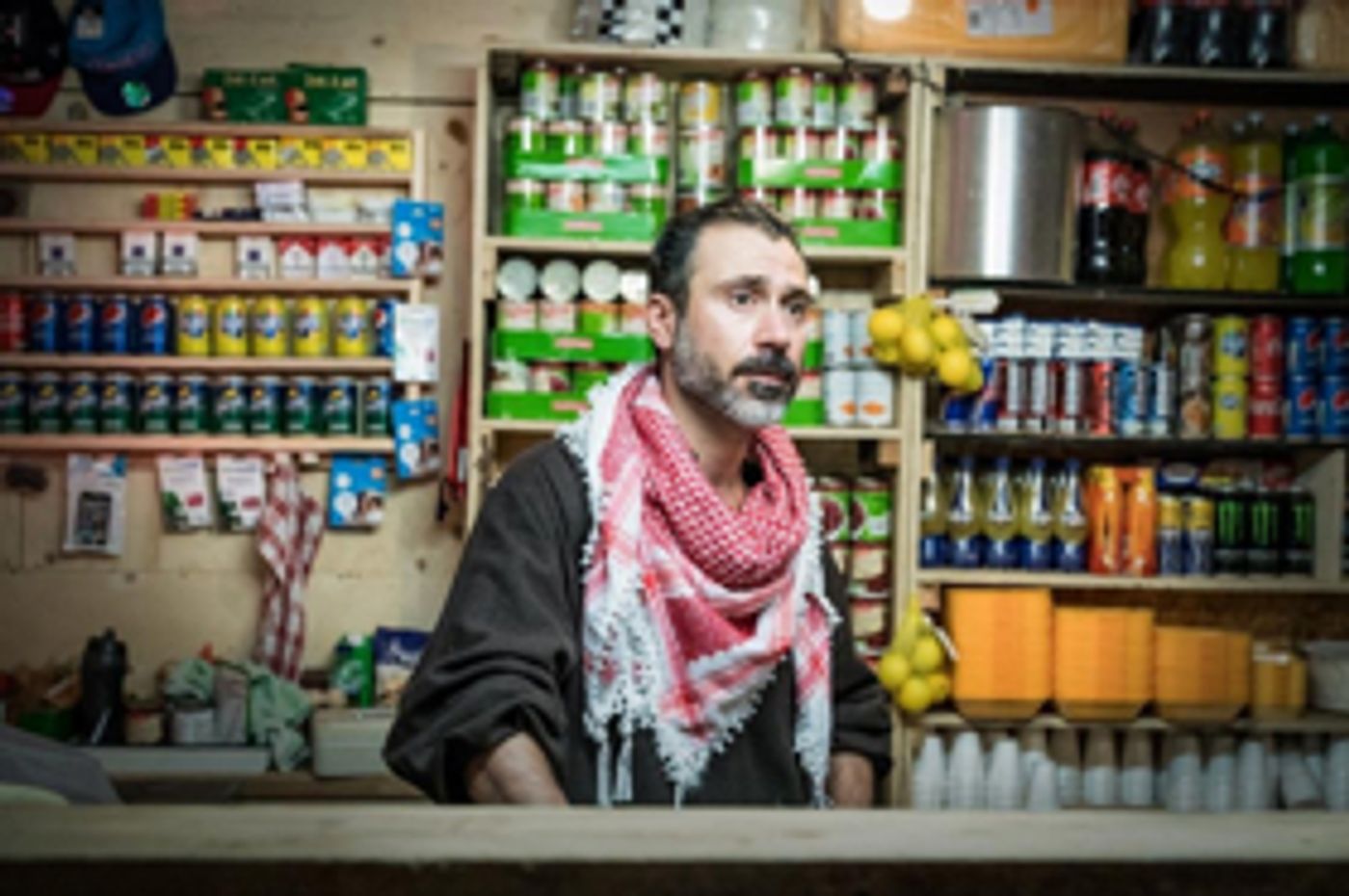
What was it like to write it together?
We've been writing together for a long time now. We write on Google Docs, we find it very easy to write there because you can see the lines that have been written by one another and edit them before they're even finished [they laugh].
We decided together the structure of the story, the really important landmark moments in the life of The Jungle. We plotted it and then in different ways we wrote different sections and then came together and then workshopped a lot.
We had a lot of workshops at the National Theatre and the Young Vic, and throughout the process we worked with people who were in The Jungle, some of them are in the play still. A lot of people who weren't in The Jungle have experienced migration, or their families have. Throughout that workshop process, during rehearsals, we tried to fill it with the humanity that we couldn't honour by ourselves, the humanity that we really encountered in The Jungle.
I think that's the really important point, that we obviously went in with a script to workshop, but we were keen and felt that it was vital that we opened up the process to include different voices. It's in many senses a play of different perspectives , just as The Jungle was a place of different nationalities, so it felt essential that the script wasn't dictated singularly by us, that it was opened up to anyone involved.
That's the great thing about theatre, you know: it's, in a way, the most collaborative art form, because you can have a piece that we produce but that goes through so many layers of interpretations - through the actors, the director, the designer - that makeshift quality is very similar to The Jungle itself. Growing every day, responding to the need of the room every day...
The play is set in an Afghan restaurant/ There were many of these restaurants, built by brilliant chefs from Pakistan, Afghanistan, Syria... They were places of community, the same quality of the play and the space - they invited everyone to get involved.
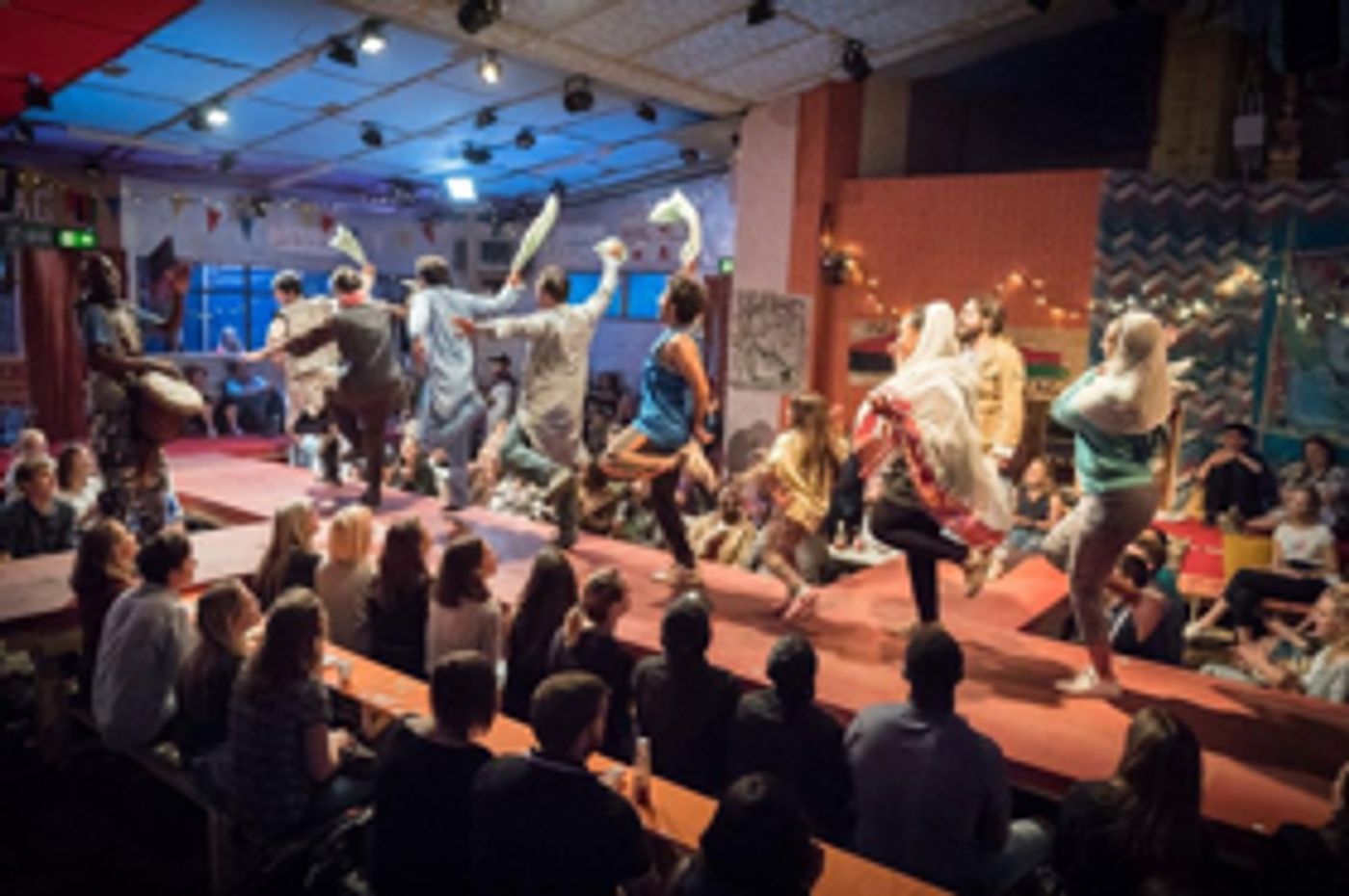
Did you expect it to have such a huge success?
Not at all, really. I mean, we set out to try to represent the situation as we saw it and that is very much unexpected. But it grew and grew and we gave body to the voices; what we found at the Young Vic was that audiences came in, had the experience, and then came out gasping for more answers and asking loads of questions: "What can I do?", "How can I get involved and get more active?".
This is such a big issue and it will be such a big issue for decades to come. That really has inspired the transfer, and the fact that so many people came and were induced to change their own lives because of that.
But also, although it's in this bigger theatre, it's still the very small story that it's always been: a group of people trying to come together to say what's happened to them. We're still together at the beginning of every day, the same family who were in The Jungle and did all those workshops and then went to the Young Vic and then are here. It's a bigger theatre but it's still our little family, I think.
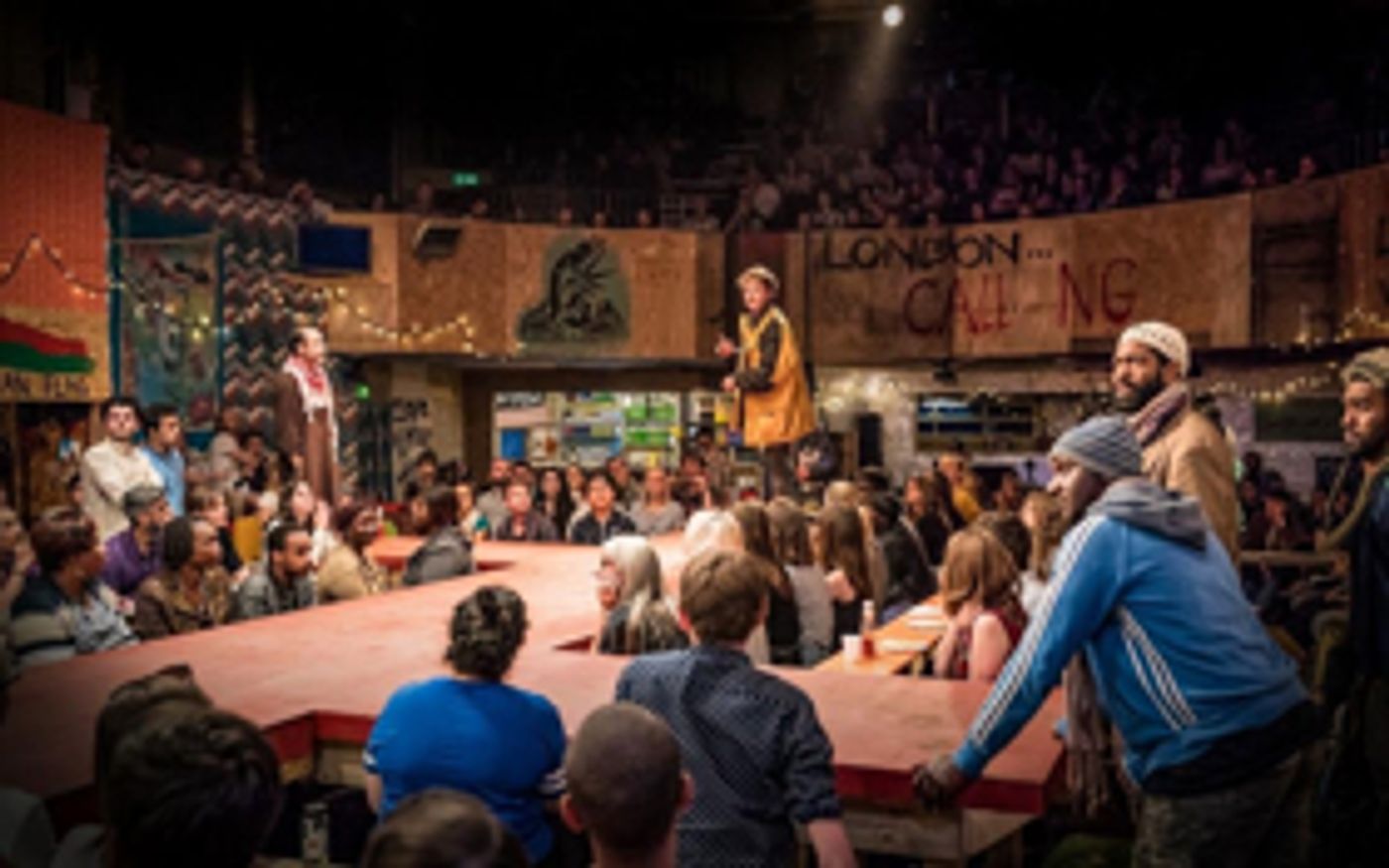
There are two points of view for the audience: inside the restaurant or on the White Cliffs of Dover. How does this come into play within the story?
With the set, as soon as we began to think about the necessities of transferring it, we took a step back and wondered what we could do to give a different experience.
What we came up with for the upstairs were traditional theatre seats based on the fact that this migration crisis was the first of its kind to be captured on camera by the people involved. Everyone was recording and taking pictures and sharing were they were, different landmarks, different countries.
We wanted to embrace the fact that phones are an important part of migration now. So, what we have upstairs in the theatre is camera phones rolling from within the restaurant. You see different parts of the restaurants from a different perspective just as we felt in the UK and what's on the news with the rolling footage of people moving from country to country to Europe. At the Young Vic the restaurant was divided into nationalities, so you were sitting in different countries just as The Jungle was.
We made that the White Cliffs of Dover because there's a lot of addressing by the characters to this other world. I think people will be affected by that. It puts you through two completely different experiences, both equally interesting and valid but fundamentally very different.
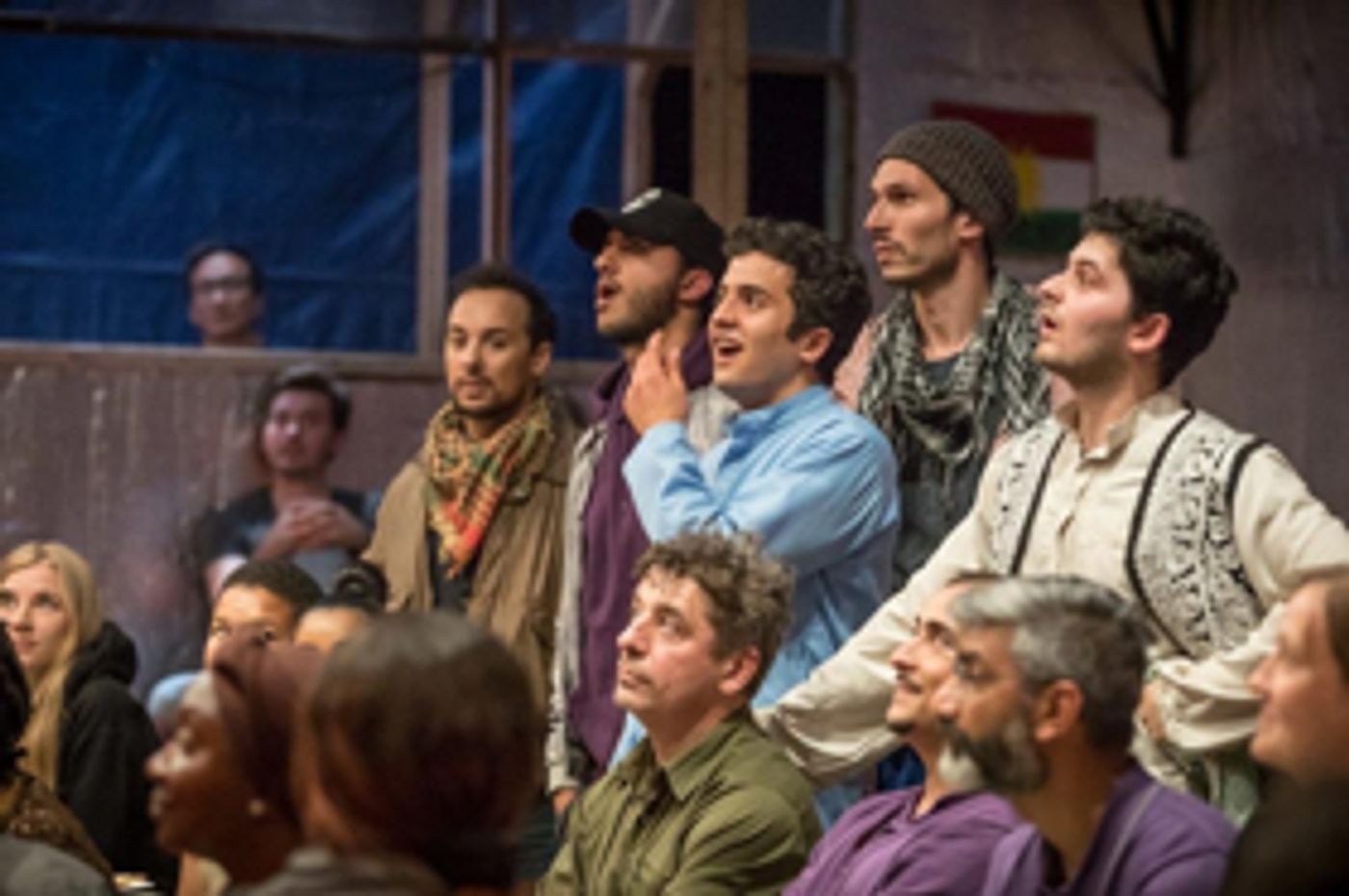
What's been this journey with Good Chance Theatre for you?
Good Chance really began in The Jungle, and in the course of a month we'd met the most brilliant people and seen wonderful performances and some of the best nights at the theatre we've ever had.
We've realised there are innumerable situation like Calais still existing now based in Europe. Places where, yes, food is vital, shelter is vital, but where people want a place to think and to meet and to reflect. We knew before we left Calais that we'd built what currently doesn't exist in many refugee camps and we wanted to continue with it.
We carried on with our company and registered charity. We held a festival in London called The Encampment, brought together a lot of the guys and girls we'd met in Calais - they ran the festival with so many different artists from around the world - then we started working in Paris and we've been there ever since. We're building a new site in one of France's biggest refugees welcome centres. The way Good Chance has spread, it's gone from being about the crisis situation to a more long-term aid and that aid is how do we stick together.
Many, many refugees arrive in Paris every day and so happens in Rome and London, the big question of our time is how do you create spaces where newly arrived people can meet local people and the difficult process of knowing one another can start. That's been the process for Good Chance and we play a part in that. We're now beginning to go further than France and other places where Good Chance can work.
Art is a brilliant social tool for us and it's a way of allowing people to meet for the first time people from very different backgrounds and thinking of new ways of understanding each other. To us, that's the moment where there's such deep understanding, we've seen such great differences being breached. It's a secret weapon.
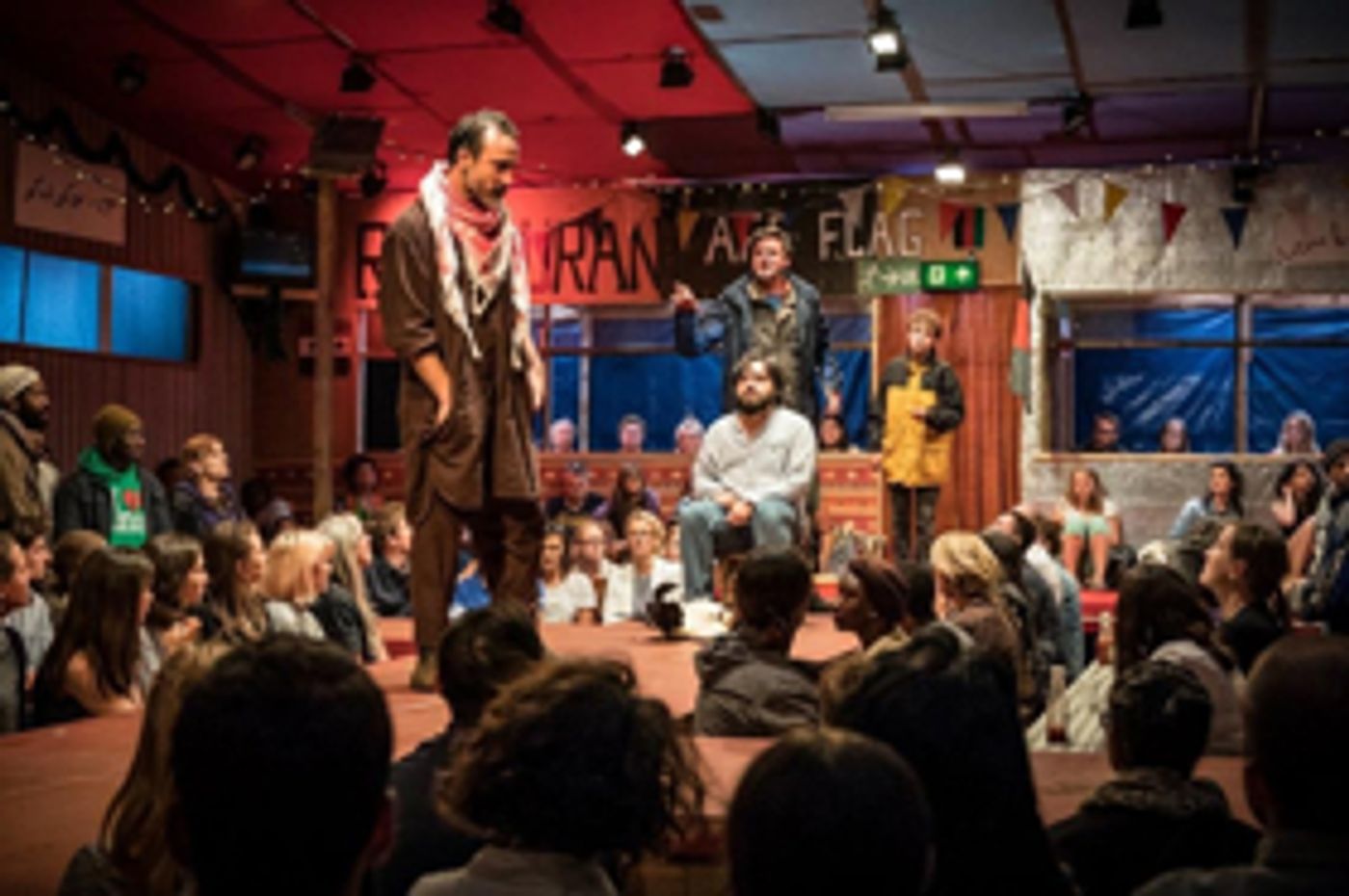
Is this production different from the original one?
We don't want to give too much away. We have tried, with the performers on stage, to really build the world. We've tried to push our barriers. I feel like it's a deeper and more full experience.
And that will only continue to grow during the next few weeks of previews. It's a constantly changing play anyway, it's constantly growing and deepening, and that will only carry on.
What do you think the reception will be this time around?
We don't know, really. The only thing we can say to that is that it's interesting moving from a subsidised theatre - where perhaps there's an expectation that the audience will be maybe slightly more liberal and sympathetic towards this particular subject matter - to the heart of the West End. We hope that the play can welcome people of all different opinions; as well as it being something that is "important", it's also something that is entertaining.
I mean, I know that it sounds perhaps strange to say given how desperate the situation was portrayed as, but it was almost fun as well - the meetings and the new friends that we've made, it was such high energy. The play had to involve that sphere. Hopefully that kind of energy will be welcoming to all kinds of people, traditional West End theatregoers as well.
What would you like the audience to take from the play?
We hope that people take the background, journey, dreams and ambitions of the many people we met, the quite extraordinary hope and optimism and endeavour that we discovered in The Jungle.
Powered by
|
Videos

